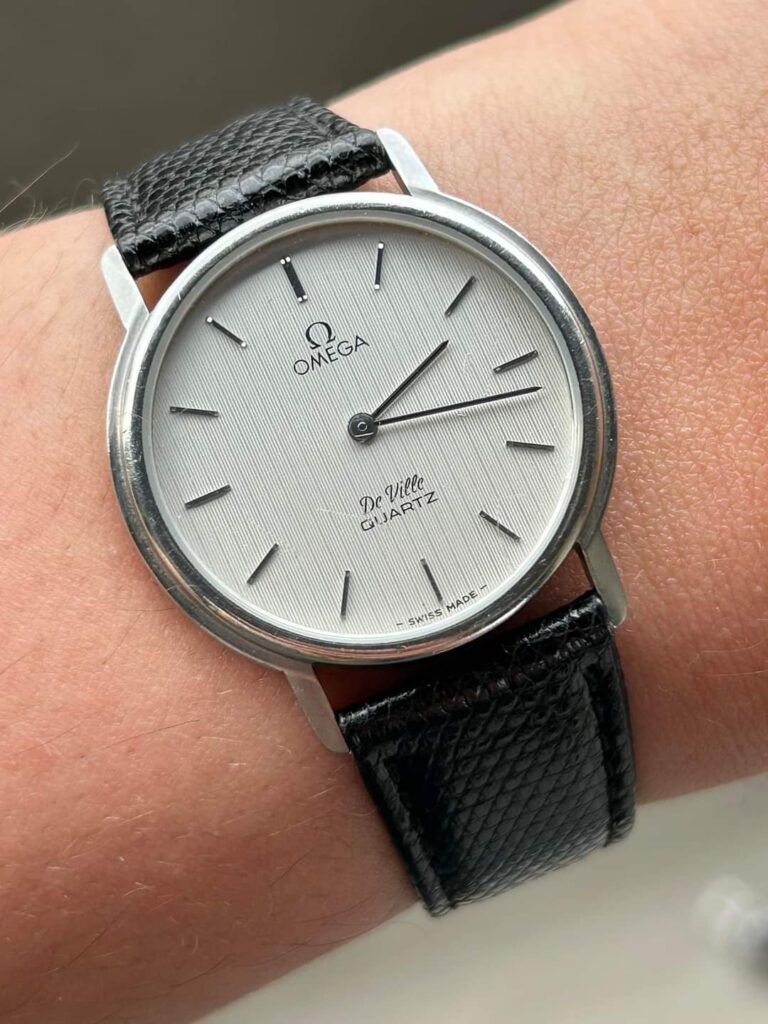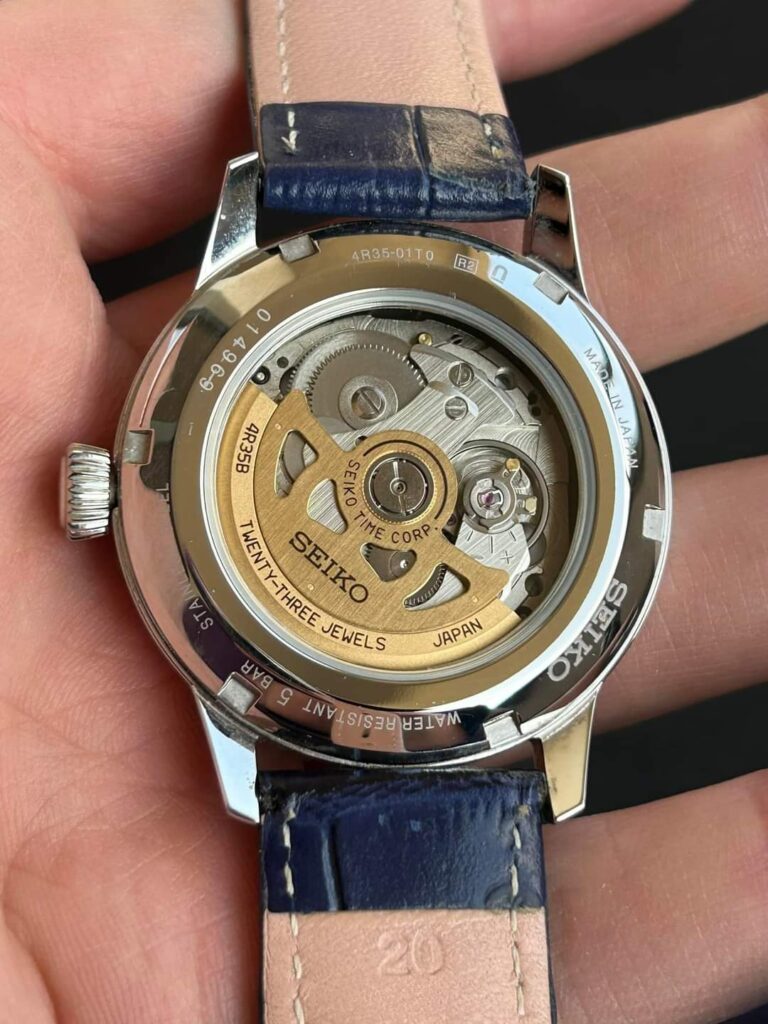Tale 35: Quartz vs. Mechanical Watch: Easy Guide For Collectors
Table of Contents
Are you caught in the timeless debate of quartz versus mechanical watches? Choosing the right watch can feel overwhelming, especially with so many options available. In this comprehensive guide, we’ll break down the differences between quartz and mechanical watches, helping you understand the pros and cons of each type. Whether you’re a watch enthusiast or a casual wearer, this article will equip you with the knowledge you need to make an informed decision.
From the precision of quartz movements to the intricate craftsmanship of mechanical watches, we’ll explore every aspect of these timepieces. By the end of this article, you’ll have a clear understanding of which type of watch suits your lifestyle, preferences, and needs.
The Rise of Quartz Watches: Precision and Convenience
What is a Quartz Watch?
A quartz watch is a timepiece that uses a quartz crystal to keep time. The quartz crystal oscillates at a specific frequency when an electric current is applied, which is then translated into precise timekeeping. This technology revolutionized the watch industry in the 1970s when quartz watches became widely popular due to their accuracy and affordability.
Advantages of Quartz Watches
Accuracy
Quartz watches are known for their precision. They can be accurate to within a few seconds per month, making them far more reliable than mechanical watches, which can vary by several seconds a day.
Low Maintenance
Unlike mechanical watches, which require regular winding and servicing, quartz watches are low-maintenance. A simple battery replacement every few years is all that’s needed to keep them running smoothly.
Affordability
Quartz watches are generally more affordable than their mechanical counterparts. The manufacturing process for quartz movements is less complex, allowing brands to offer a wide range of options at various price points.
Durability
Quartz watches are often more durable than mechanical watches. They are less susceptible to shocks and can withstand everyday wear and tear, making them ideal for active lifestyles.
Variety of Designs
The quartz movement allows for a wider variety of designs and styles. From digital displays to classic analog designs, quartz watches come in countless styles to suit every taste.
Disadvantages of Quartz Watches
Less Craftsmanship
Many watch enthusiasts appreciate the intricate craftsmanship of mechanical watches. Quartz watches, while reliable, often lack the same level of artistry and detail.
Battery Dependency
Quartz watches rely on batteries, which means they can stop working if the battery dies. This can be inconvenient for those who prefer a watch that runs continuously without the need for battery replacements.

The Allure of Mechanical Watches: Craftsmanship and Tradition
What is a Mechanical Watch?
A mechanical watch is a timepiece powered by a complex system of gears, springs, and levers. These watches can be either hand-wound or automatic, with automatic watches winding themselves through the motion of the wearer’s wrist. Mechanical watches have a rich history, dating back hundreds of years, and are often considered the pinnacle of watchmaking craftsmanship.
Advantages of Mechanical Watches
Artistry and Craftsmanship
Mechanical watches are often seen as works of art. The intricate movements, visible through transparent case backs, showcase the skill and dedication of the watchmaker.
No Battery Required
Mechanical watches do not require batteries. Hand-wound models need to be wound regularly, while automatic models wind themselves with wrist movement. This appeals to those who prefer a more traditional approach to timekeeping.
Longevity
With proper care, mechanical watches can last a lifetime or longer. Many enthusiasts pass down their mechanical watches as heirlooms, creating a personal connection to the timepiece.
Smooth Movement
The second hand of a mechanical watch moves smoothly rather than ticking, providing a unique aesthetic that many find appealing.
Status Symbol
Owning a high-quality mechanical watch is often seen as a status symbol. Brands like Rolex, Patek Philippe, and Audemars Piguet are synonymous with luxury and prestige.
Disadvantages of Mechanical Watches
Less Accurate
Mechanical watches are generally less accurate than quartz watches. They can gain or lose several seconds each day, which may be a concern for those who prioritize precision.
Higher Maintenance
Mechanical watches require regular servicing to maintain their accuracy and functionality. This can be costly and time-consuming compared to the low maintenance of quartz watches.
Weight
Mechanical watches, especially those made of stainless steel, can be heavier than quartz watches. This may be uncomfortable for some wearers, particularly during extended use.
Key Differences Between Quartz and Mechanical Watches
| Feature | Quartz Watches | Mechanical Watches |
|---|---|---|
| Power Source | Battery-powered | Mainspring (manual or automatic) |
| Accuracy | Highly accurate (±15 sec/month) | Less accurate (±20 sec/day) |
| Maintenance | Low maintenance (battery replacement) | Requires regular servicing |
| Craftsmanship | Mass-produced, less intricate | Handcrafted, intricate movements |
| Weight | Lightweight | Heavier, especially in metal |
| Durability | More durable, shock-resistant | Less shock-resistant, more fragile |
| Aesthetic Appeal | Modern designs, digital options | Classic, traditional designs |
| Price Range | Generally more affordable | Higher price for quality craftsmanship |
Frequently Asked Questions
Which is more accurate: quartz or mechanical watches?
Quartz watches are significantly more accurate than mechanical watches. While quartz watches can maintain accuracy within a few seconds per month, mechanical watches may gain or lose several seconds per day due to their intricate movements.
Do mechanical watches require more maintenance than quartz watches?
Yes, mechanical watches generally require more maintenance than quartz watches. Mechanical movements have numerous moving parts that need to be lubricated and serviced periodically to ensure optimal performance. Quartz watches, on the other hand, only require a battery replacement every few years.
Are quartz watches less prestigious than mechanical watches?
While quartz watches are often viewed as less prestigious than mechanical watches, this perception is changing. Many high-end brands now produce quartz watches with exceptional craftsmanship and design. However, mechanical watches are still regarded as the pinnacle of horological artistry.
Can I wear a quartz watch while swimming?
Most quartz watches are designed to be water-resistant and can be worn while swimming. However, it’s essential to check the watch’s water resistance rating before exposing it to water.
How long do quartz watch batteries last?
The lifespan of a quartz watch battery typically ranges from 1 to 5 years, depending on the watch’s features and usage. High-functioning quartz watches with additional complications may require more frequent battery replacements.
Are mechanical watches more expensive than quartz watches?
In general, yes, mechanical watches tend to be more expensive than quartz watches. This is due to the complex engineering and craftsmanship involved in the production of mechanical movements, as well as the perceived exclusivity and prestige associated with these timepieces.
Can I wear a mechanical watch every day?
Absolutely! Mechanical watches are designed to be worn regularly, and many enthusiasts choose to wear their mechanical timepieces as their daily drivers. However, it’s important to ensure that the watch is properly wound and maintained to keep it running smoothly.

Conclusion
When it comes to choosing between quartz and mechanical watches, the decision ultimately comes down to personal preference and lifestyle. Quartz watches offer unparalleled accuracy, low maintenance, and affordability, making them an excellent choice for those who prioritize practicality. On the other hand, mechanical watches provide a captivating experience, showcasing the artistry and craftsmanship of traditional watchmaking.
Whether you opt for the precision of quartz or the charm of mechanical movements, both types of watches have their unique advantages and appeal. By understanding the differences between these two categories, you can make an informed decision that aligns with your style, needs, and values.
Our Latest Posts
- Tale 73: Luxury Watch Investing: How to Build a Valuable CollectionTale 73: Luxury Watch Investing: How to Build a Valuable Collection Investing in luxury watches has become an increasingly popular avenue for wealth preservation and growth. The luxury watch market is not only about aesthetics and craftsmanship; it also represents a unique investment opportunity that can yield substantial returns. As collectors and investors alike seek… Read more: Tale 73: Luxury Watch Investing: How to Build a Valuable Collection
- Tale 72: Automatic Watch Accuracy: How to Maintain PrecisionTale 72: Automatic Watch Accuracy: How to Maintain Precision In the world of horology, automatic watches stand out for their intricate mechanics and the artistry involved in their craftsmanship. However, many enthusiasts and potential buyers often ponder a crucial question: How accurate are automatic watches, and how can one maintain their precision? This blog post… Read more: Tale 72: Automatic Watch Accuracy: How to Maintain Precision
- Tale 71: Watch Mods: How to Elevate Your Look with Wave DialsTale 71: Watch Mods: How to Elevate Your Look with Wave Dials In the world of horology, watch modifications—or “watch mods”—have emerged as a popular way for enthusiasts to personalize their timepieces. Whether you’re looking to enhance functionality, aesthetics, or both, modding allows you to create a unique watch that reflects your style. One standout… Read more: Tale 71: Watch Mods: How to Elevate Your Look with Wave Dials
- Tale 70: Wearing a Watch Can Easily Improve Time Management SkillsTale 70: Wearing a Watch Can Easily Improve Time Management Skills In today’s fast-paced world, effective time management is essential for success. One of the simplest yet most powerful tools at your disposal is a wristwatch. While smartphones and digital devices abound, the humble wristwatch remains a classic accessory that can significantly enhance your ability… Read more: Tale 70: Wearing a Watch Can Easily Improve Time Management Skills
- Tale 69: The Rise of Digital Wrist Watches: Your Ultimate GuideTale 69: The Rise of Digital Wrist Watches: Your Ultimate Guide Digital wrist watches have transformed the way we perceive timekeeping, blending functionality with style. As technology advances, these timepieces have evolved from simple digital displays to sophisticated gadgets that cater to various lifestyles. In this blog post, we will explore everything you need to… Read more: Tale 69: The Rise of Digital Wrist Watches: Your Ultimate Guide
